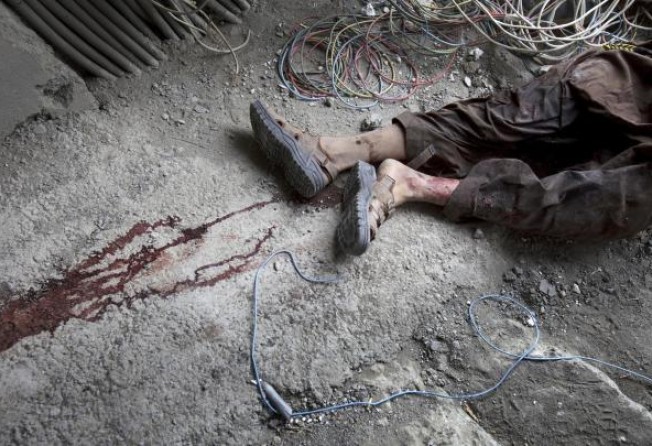UN imposes sanctions on Haqqani group and its leader Qari Zakir
The Haqqani network in Afghanistan is linked to Pakistan and is blamed for several major attacks

The UN Security Council has ordered global sanctions against the Haqqani militant group in Afghanistan and its suicide attack mastermind.
The network, which has been widely linked to Pakistan, is accused of carrying out a string of major attacks in Afghanistan including against the US and Indian embassies and a major hotel in Kabul.
Haqqani and its chief suicide attack organiser, Qari Zakir, were added to the UN's Afghanistan-Taliban sanctions list.
This means nations must apply an assets freeze and travel ban against Zakir, seize any assets belonging to the network and impose an arms embargo.
The US put the Haqqani network on its terror blacklist in September. The US State Department added Zakir to its list of terrorist suspects on Monday.
Founded by Jalaluddin Haqqani, a CIA asset turned al-Qaeda ally who was close to Pakistani intelligence, the network is considered the most dangerous faction in the Taliban army.
The UN designation said that the group was linked to al-Qaeda, the Islamic Movement of Uzbekistan and a string of militant groups in Pakistan, including Tehreek-e-Taliban Pakistan, Lashkar-e-Jhangvi and Jaish e-Mohammed.
The Haqqanis have been blamed for attacks on Afghan government and Nato targets across Afghanistan as well as kidnappings and murders.
The US ambassador to the UN, Susan Rice, said operatives trained by Zakir attacked two international coalition bases in 2010, the Intercontinental Hotel in Kabul in June 2011 - an attack that killed 11 civilians and two Afghan police - and the US embassy in Kabul in September 2011, which killed 16 Afghans, including at least six children.
It has also been blamed for an attack on the Indian embassy in the Afghan capital.
Afghanistan's spy agency said in August that the network's operational commander, Badruddin Haqqani, a son of the founder, had been killed in a US drone attack. The network is now believed to be led by another son, Sirajuiddin Haqqani.
The designation could embarrass Pakistan, which is a member of the Security Council. Many Haqqani members are believed to be sheltering in Pakistan. The US wants Pakistan to get tough with the network and cut its financing from other Muslim nations, diplomats said.
Former US chief of staff, Admiral Mike Mullen, said last year that the Haqqani network had become a "veritable arm" of Pakistan's Inter-Services Intelligence.
Ties between Islamabad and Washington have been rocky for years, and have only just resumed after being dealt a major blow by the secret operation that killed Osama bin Laden and an air raid that accidentally killed 24 Pakistani troops.